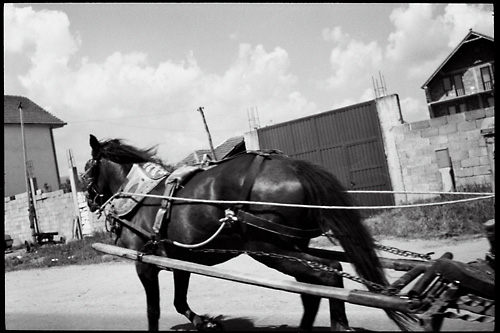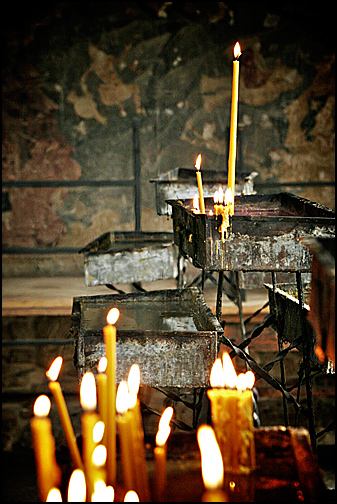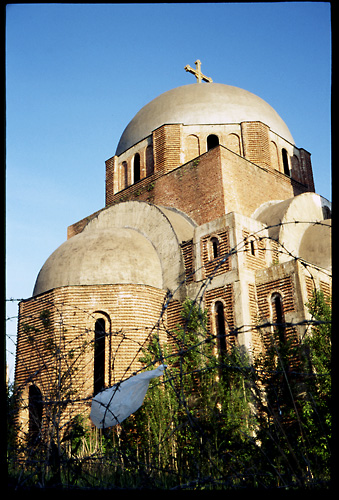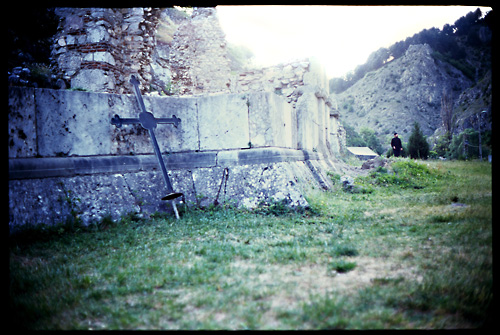
Road to Prizren
for our last night in Belgrade, we decide to try the splavovi : the bars and nightclubs on boats on the banks of the Sava river. Sander, the dutch journalism student who’s staying at our youth hostel as well joins us. we warn him that so far, we haven’t been too lucky with the nightlife in Belgrade but he doesn’t really mind. it’s past 9 when we find ourselves waiting for a bus that will never come to bring us on the other side of the river. it takes us a long time and a lot of talks between us and with anyone willing to help us out before we finally find and climb down the stone stairs leading to the bank of the Sava. there, trying to avoid to walk on syringes and to disturb a few fishermen, we finally find the main alley leading to the splavovi and the said splavovi. naturally, they’re all closed.
starving and tired, we eventually walk back to the center. the first restaurant we aim for is closed and most other open places are only bars, we can already picture ourselves eating old cookies for dinner at our hostel. our last try before giving up leads our steps to Francuska and the metal gates of a tall and old building surrounded by a garden. a quick glance shows us that the terrace is closed but when we enter in the building, a waiter leads us in the underground restaurant. we’re almost alone in the big room, classy in a deliciously old-fashionned way. in our guide, we soon read that we’ve landed in the Klub Knjizevnika, one of the oldest restaurants in town, which used to welcome the intellectual, political and even dissident elite during Tito’s times. we might not have the faintest luck in finding good bars, but, counting the « ? »– the oldest tavern in town — and this one, we’re definitely spoiled with the restaurants and food here.
****
the incence scent strikes me, as we enter the dimly lit tiny chapel. standing in front of a turning book holder, a monk sings the orthodox ritual prayers in serbian. I’m hypnotized by the way the light right above him softens his face and for a while, I can only look as his lips moving and his fingers turning the pages. another monk approaches the light and turns the book holder, while the first one makes a sign to a monk I can’t see, probably to signify him when his turn will come. at last, I can detach my eyes from the book holder to look at the room, which is barely big enough for seven monks, let alone seven monks and five journalists. I’m not sure that it was a good idea to ask to come to their service, I feel like we’re a bunch of ruthless invaders violating their privacy, but finally, the soft orange light on the monks’ faces makes me partially change my mind, after all, our job is to invade privacies to tell our stories. I can only suppose that as long as we do it respectfully, I should be thankful for being there and sharing these precious moments. I don’t take any picture, but I fix the paintings everywhere on the walls, I fix the icons and candles, I fix the melodies and the words of their prayers and most of all, I fix the light on their faces.
****


